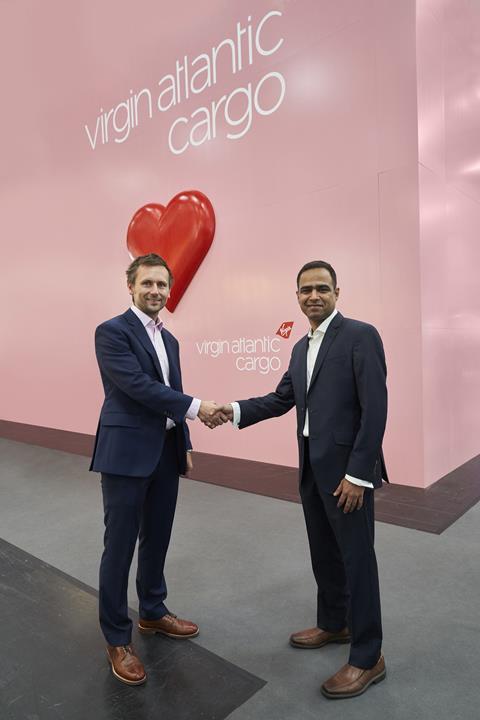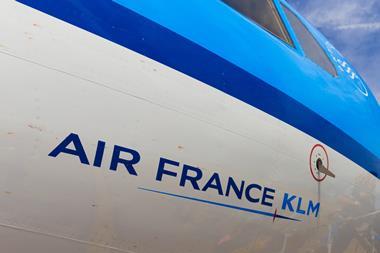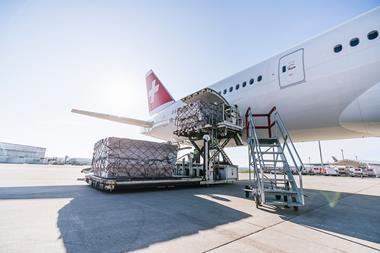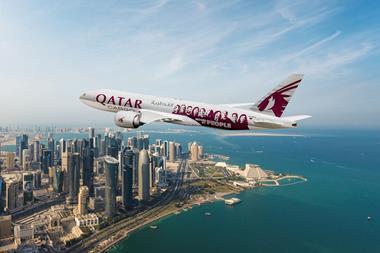
Virgin Atlantic is to implement the Freight & Logistics Software 8.0 (AFLS 8.0) platform from Accenture in a move that it said will add a further boost its ‘digital transformation’ programme.
Virgin Atlantic said that it will be the first company to adopt the digital capabilities of the latest AFLS 8.0 platform – a cloud-enabled, end-to-end cargo management software suite.
The new platform will replace Virgin’s 10-year-old Voyager operating system when its first phase goes live in early 2020.
According to the UK-based carrier, AFLS 8.0 “goes beyond a traditional cargo management system and will drive the airline’s digital future, delivering game-changing benefits for the airline, its customers and partners”.
Once the system is fully operational – the timetable on which will depend on the release of subsequent phases of the system – Virgin Atlantic customers’ systems will be able to interface directly through APIs and connect with the airline’s new web platform for pricing, bookings, allocations and operations.
Plus, ‘live chat’ and Chatbots will offer 24/7 interaction based on each customers’ communications preferences.
Suzy Wardle, Virgin Atlantic Cargo’s head of digital & distribution, remarked: “We are making this significant investment in a new cargo management system and digital infrastructure because the way customers want to interact with us, and their expectations, are changing as new technologies emerge in the cargo space.
“With Accenture’s full suite of AFLS modules, including cloud-enabled digital interactions with our customers and partners, we will evolve the way we do business and offer our products and services.”
Wide-ranging benefits
The AFLS 8.0 platform will support the continued growth of Virgin’s cargo business, the freight carrier observed, by enabling:
- Automation and self-service, supporting simpler pricing, booking and routing processes
- Better decision-making, aligning revenue management processes around routes, capacity, costs and rates
- Real-time visibility, control and enhanced utilisation of capacity, thereby increasing profitability
- Simplification of processes and greater responsiveness
- Data warehousing, enabling analytics and optimisation
- Integration with other Virgin systems, enabling seamless syncing with its cargo partners
Dominic Kennedy, managing director, cargo, at Virgin Atlantic, declared: “Our entire business model is based on giving customers more choice and flexibility, whether this means more routes and frequencies, new products and services, or the ability to interact with us in the way they want to do business.
“And, we want our customers to experience great service,” he continued. “We are making positive progress in each of these areas but to modernise and future-proof our business, we need a far-reaching digitisation programme which allows customers to interact with us in new and innovative ways by offering them the opportunity to do everything they do with us today by phone and email via a digital platform.
“We are looking forward to having real-time intelligence to make the most informed business decisions. The AFLS 8.0 platform is going to accelerate our digital transformation and give customers even more reasons to choose to work with Virgin Atlantic.”
Ganesh Vaideeswaran, managing director in Accenture’s AFLS business, added: “Accenture designed this platform to help its clients reinvent the way they communicate and operate with customers, employees and partner ecosystems.
“For Virgin Atlantic Cargo, AFLS 8.0 will support its goals to redefine core business processes and drive commercial and operational excellence.”
Virgin Atlantic Cargo saw its revenues increase by 13% year on year in 2018 as it achieved its strongest revenue performance of the last five years.
In total, the airline registered cargo revenues of £222m on the back of a 6% increase in volumes to more than 244,000 tonnes, the airline’s best result since 2010.










